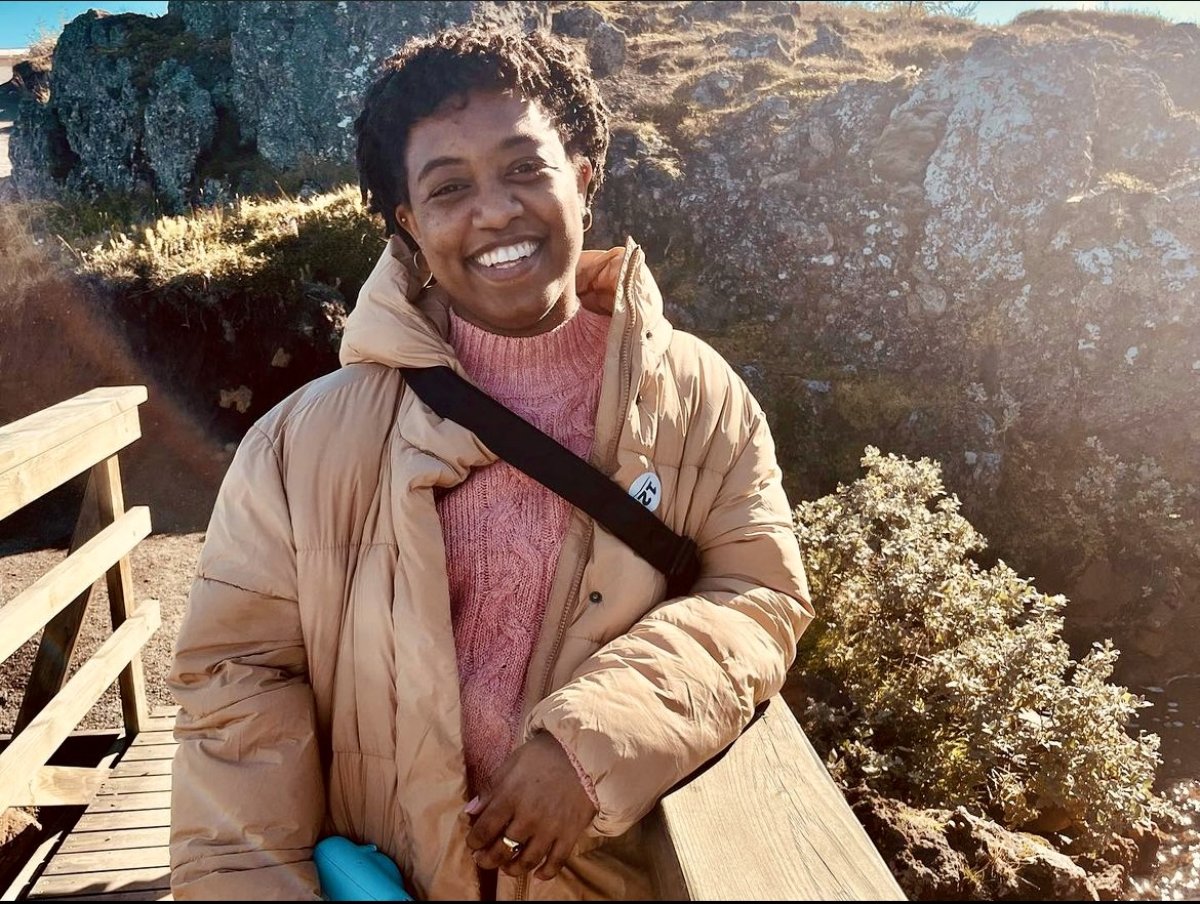It's not a procedure you'd expect a 28-year-old to be planning. But for Lydia Echols from Texas, having her fallopian tubes removed is the price she's willing to pay to ensure her reproductive rights.
Newsweek spoke to five women who have either undergone sterilization procedures or plan to in the wake of President-elect Donald Trump's victory on November 5. They all expressed fear their reproductive choices will be taken from them under Trump's administration.
"If I am to be denied any rights in the next four (or more) years, I will not give them up without a fight," Echols said.
Newsweek has contacted Trump's transition team, via email, for comment.
Last week, a 39-year-old from Washington state, who did not want to be named, underwent a bilateral salpingectomy, in which her fallopian tubes were removed.
"I am not happy that I felt forced into a surgery I did not want to alter my body, I feel like the election tied my hands and forced me to be sterilized—that is horrible," she told Newsweek.
The issue of abortion and reproductive rights was a major one in this year's election. Trump, who took credit for the Supreme Court's overturning of Roe v. Wade in 2022, removing the constitutional right to an abortion in the country, has repeatedly said that his position is to let the states decide their own abortion laws.
He has also said he would veto a national abortion ban, writing on Truth Social in October: "I would not support a federal abortion ban, under any circumstances, and would, in fact, veto it, because it is up to the states to decide based on the will of their voters (the will of the people!)"
But this has not quelled the fears of multiple women who, on top of being worried about access to abortion, are also concerned about whether the availability of birth control will be impacted.

'I Would Have Canceled the Surgery if Kamala Harris Won'
The woman from Washington has not told those close to her that she has been sterilized. Since she was a child, she has known she does not want children.
She and her husband, who had a vasectomy in 2021, both felt that they had experienced too much trauma as children themselves to be the parents they wanted to be. She has also struggled with multiple health issues, including polycystic ovary syndrome (PCOS), which made pregnancy risky for her.
But "neither of us wanted to subject me to an unnecessary surgery or jeopardize my health."
"I paid way too much attention to the vitriol Trump repeatedly spit during his previous term," she added, "and am keenly aware of the people he keeps around him and in his ear, who all seem to see women as incubators and possessions to subjugate."
The woman scheduled a sterilization appointment in October, "fully planning to cancel the surgery the day after the election, assuming Kamala won."
"With Trump's victory, we quickly learned that my choice to cancel the surgery had been taken from me," she said. "We both believed that I had no choice but to proceed to ensure that I can protect my health should I be assaulted during a Trump presidency, should my husband's vasectomy fail and/or should my hormonal birth control become inaccessible."
She added: "This isn't a wanted procedure, but one of necessity due to the politics and subjugation coming our way."
'This is the Time to Prepare and Be Prudent'
Echols said she had "been wanting to be child-free for a very long time" and is planning to get a bilateral salpingectomy with an endometrial ablation—when the lining of the uterus is destroyed. Her doctor approved the procedures earlier this month.
"The next four years will go in the way of the Christian nationalists if what I have seen and heard and experienced is to be believed," she said. "Anyone who has...taken a look at the social tirade Donald Trump encouraged and employed during his years in the office knows that this is the time to prepare and be prudent for what could yet come."
"I'd rather be safe than sorry," she added.
The former teacher also said she wished she could "give [her] fertility to someone who desperately wanted to have children."
"I am sad that I cannot take away the pain of infertility of another person who desires to have children," she said.

'This Feels Like the Only Option'
Morgan Wood, 24, who lives in Georgia, and has also never wanted children, had considered sterilization for the serious gynecologic issues she has struggled with since middle school.
Her experience with medical professionals for these issues left her with "a pretty deep distrust of doctors" and "weary about the prospect of health care throughout a pregnancy."
"I felt pretty certain that my body could not handle a pregnancy, even if I did have some huge change of mind and want kids, and after these experiences," Wood said.
Up until Trump's victory, Wood had thought she would deal with the question of whether to get sterilized when she was older. She thought she would start asking doctors about sterilization when she turns 27, when it will be time to get her intrauterine device (IUD) removed.
But, after November 5, she said it became a "now" issue and has set up a consultation for December 5.
"I have no idea what Trump will and won't follow through on," Wood said, "I was already upset when Roe v Wade was overturned. Living in the South, our prospects for protections and resources aren't great if they aren't otherwise ensured."
She said: "But talks of complicating the birth control and abortion access processes even further made this feel like the only option. I need everything handled, and ideally before power begins shifting."
'I Refuse to Be Denied Medical Care'
Ashley Hedden, 36, who is asexual (she does not experience sexual attraction) is worried about sexual assault and medical care for pregnant women.
"The only way I would get pregnant is if I were raped, and I refuse to be forced to carry the result of a man's violence against my will," she said.
Hedden, who lived in Kentucky, went on: "I have seen that this country will not protect people that can get pregnant, and have seen the reports of the deaths of pregnant women that were refused medical care. I refuse to be a person that ends up not being able to get medical care just because I own a uterus with some cells growing in it."
She was referring to several women who have died while pregnant in states where abortion laws restrict when doctors can intervene.
In September, Amber Nicole Thurman, 28, was named the first "preventable" abortion death, when investigative journalism site ProPublica reported that Thurman experienced a rare complication after taking abortion pills and died during emergency surgery in August 2022.
Georgia's law banning most abortions after about six weeks of pregnancy, labeled the LIFE Act, took effect on July 20, 2022. Thurman had passed that mark when she discovered she was pregnant, records shared with ProPublica showed.
The new law also made performing a dilation and curettage (D&C), a procedure to remove tissue from the uterus following an abortion or miscarriage, a felony offense with medical exceptions.
Georgia's maternal mortality review committee, which includes 10 doctors, concluded that there was a "good chance" that Thurman's death could likely have been prevented if the D&C had been provided earlier.
'I Am Choosing Me'
Eden Ixora, 25, who lives in Florida, is also worried about sexual assault. She made a "firm decision" last month that she will get a bilateral salpingectomy.
"All the political noise is what really finalized my decision for me," she said. "It wasn't just Trump winning but rather all the online rhetoric that followed."
She cited nationalist podcaster Nick Fuentes' viral clip, telling women "your body, my choice" and the "jokes" about it as an example of this.
Newsweek has contacted Fuentes, who has said the comment was "sort of a joke" and a critique of the pro-choice movement and modern feminism, via direct message on X, for comment.
"For me it was a call to action," Ixora said. "A need to get this locked in so I don't have to live in fear that at any moment some random guy can completely destroy my life. For me the idea of getting pregnant is worse than death. I'm doing what I can to protect my right to choose. I am choosing me."

What About Trump's Assurances?
Trump has repeatedly denied that he would bring in a national abortion ban and he has explicitly distanced himself from Project 2025, The Heritage Foundation's 922-page document outlining how a potential Republican administration could overhaul the federal government, which includes limiting access to the abortion pill mifepristone.
But the five women who spoke to Newsweek are not convinced.
"Trump lied through his teeth repeatedly and consistently through his previous term," the woman from Washington said. "There is so much documentation of him saying one thing then doing another."
Both she and Echols pointed out that since Trump's victory, he has appointed people with links to Project 2025, including Brendan Carr, who has been tapped to lead the Federal Communications Commission, and John Ratcliffe, who Trump has nominated CIA director.
"I am no fool," Echols said. "The men behind [Trump] will push for whatever they think is right and will lube Trump's ears with what he so desperately craves in return—power and attention. I do not trust a word that man says, but I know the men (and women) behind him will stay true to their word."
Wood said: "I generally don't trust politicians, but I especially don't trust Trump. He is notoriously bad at keeping his story straight."
Similarly, Hedden said: "I do not think Trump has an honest bone in his body. I have seen enough of Donald that I understand he says whatever he needs to say in the moment."
Meanwhile, Ixora said she is not worried about "one specific proposal" but "the overall societal temperature and the fact that we as a group have even allowed it to get this far where women's reproductive choices are not considered rights."
Newsweek has put all these comments to Trump's team for a response.
4B Movement
Since the election result, thousands of people on TikTok and X, formerly known as Twitter, have been posting about participating in the 4B movement, a feminist protest movement that originated in South Korea in the mid-2010s.
The 4B movement stipulates four "nos": no sex with men, no giving birth, no dating men and no marriage with men. The words for the terms in Korean all begin with the prefix "bi," which means "no," as reported by Bustle.
Sex strikes, a form of protest more widespread than the 4B movement, have taken place in countries around the world over the years, including Colombia, Kenya, Liberia, Italy, the Philippines, South Sudan and Togo.
Another way some women responded to Trump's victory was to boycott Thanksgiving with family members who voted Republican.




















 English (US) ·
English (US) ·